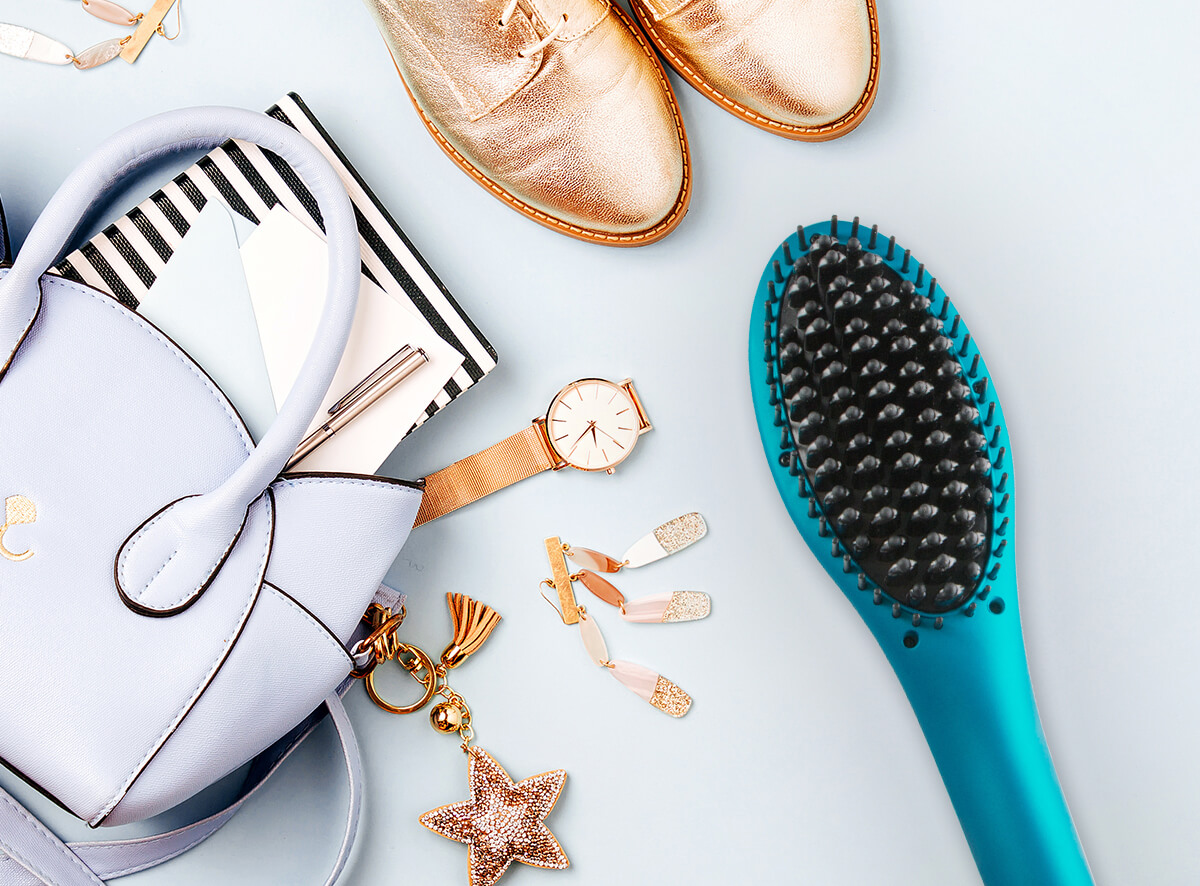Hair Care
Revitalizing Your Hair Routine for the Changing Seasons
Many people are aware of how their skincare routines need to be adjusted as the seasons change. After all, your skin’s needs are significantly affected by seasonal transitions, and the skincare products you use should be able to cater to that.
However, few people realize that the same applies to their hair routine. Each season brings with it a new set of hair challenges. The best way to meet these is by ensuring that the hair care products and styling techniques you’re utilizing have been adapted to the season you’re currently in.
How do you go about doing this? Read on as Nubi shares some top tips for revitalizing your hair routine for the changing seasons.
Protect Your Hair From the Seasonal Elements
Each season brings with it a range of environmental aggressors, all of which your hair needs to be protected from.
Let’s start with summer, when UV rays are the biggest issue. They cause damage to the hair cuticles, meaning the outer layer that protects each strand of hair. This then allows deeper damage to take place, which is how UV rays contribute to protein and tensile strength loss, hair color changes, lack of shine, dehydration, and more.
This is why sun protection should play a crucial part in your summertime hair routine. While you could invest in some hair SPF, keeping your hair covered with a hat, scarf, or protective hairstyle will also help to shield your strands from UV damage.
While UV rays can still harm your hair in the winter, the cold temperatures and bitter winds are often more of a problem. Keep reading and you’ll find out how to counter the issues that they can cause but, once again, keeping your hair well-wrapped and undercover will help to prevent the winter elements from taking too much of a toll on your locks.
Limit Heat Styling During Extreme Weather Conditions
As you now know, the environmental conditions in both the summer and the winter can wreak havoc on your hair. However, sometimes these conditions can turn pretty extreme. Scorching heat for weeks in the summer followed by below-freezing temperatures for months in the winter can leave the hair looking not-so-great.
During these extreme times, your hair will be even more vulnerable to damage. This makes it important to ensure that your hair routine isn’t causing any additional damage. This would be the last thing that your hair needs when it’s already facing so much turmoil from the environment around it!
How can you do this?
One way would be to cut back on heat styling. Over-using heat can harm your strands, exacerbating the damage caused by the weather. When heat styling is unavoidable, turn to tools that allow you to control the amount of heat that’s emitted. The Nubi Simply Sleek Brush, for example, comes with a choice of five temperature settings. This means that you’ll be able to heat style your hair without subjecting your strands to excessive temperatures. The result will be healthier-looking hair.
Focus on Hydration Year-Round
While some aspects of your hair routine should adapt to the seasons, others should remain the same year-round, with a focus on hydration being one of those. Dehydration is something that your hair will struggle with during every season. From the summer sun pulling moisture out of your locks to the dry winter air sucking hydration from your strands, dehydrated hair is never a good look. Not only will your hair appear limp and dull but frizz will also be a much bigger problem. Rather than sitting flat against your hair, your dehydrated strands will reach upward and outward in an attempt to clasp onto some of the moisture in the air, resulting in a halo of fluffy frizz.
How should you hydrate your strands?
By adding some hydrating products to your hair routine. Hair serums are great for this. Look for formulas that are packed with hydrating ingredients. For best results, apply your hair serum to your strands while they’re wet. This is when your hair is most permeable, which will allow the serum to dive right into your strands.
Cut Back on Shampooing During the Colder Months
In addition to actively hydrating your hair, you should also be taking preventative steps with your hair routine to cut back on the amount of dehydration that you experience in the first place. We’ve already talked about how to do this when dealing with the dehydration caused by seasonal elements. However, you may also be dehydrating your locks with your shampooing habits…
As essential as shampooing your hair may be, many shampoos contain harsh cleansing agents that remove too much of the hair’s natural protective oils. Without these oils, moisture from within each strand will evaporate away much more quickly. This then leaves the hair dehydrated. It’s worse in the winter because the air around you is so dry, further increasing evaporation.
Of course, this doesn’t mean that you should stop shampooing your hair in the winter. However, cutting back on how often you do so would be a good idea. Many people get into the habit of shampooing their hair every certain number of days, even if their hair doesn’t actually need to be washed. Instead of doing this, pay close attention to your strands. If they don’t look greasy or dirty, save the shampoo for another day.
Combat Winter Dryness With Masks and Deep Conditioners
The body produces more sebum in warmer weather, and this applies to the sebum produced by the scalp too. While this can mean that strands get greasier faster, sebum also helps to keep the scalp and the hair moisturized. It gives the hair a softer and glossier finish, leaving it looking healthier.
However, in the winter months, sebum production slows down. This is why many find that their hair feels drier and rougher in the winter. It often doesn’t have enough sebum to keep itself conditioned.
Cutting back on how often you shampoo your hair will help with this. However, this only stops you from making that seasonal dryness worse. Your hair routine in the winter should also be geared toward moisturizing your strands to help them through the season.
Start by making sure that you use a conditioner each time you shampoo your hair. It would also be worth investing in hair masks and deep conditioners to give your strands some extra TLC. These formulas are more intense than a regular conditioner, making them great for strands that are struggling through the winter months.
Avoid Bleaching Your Hair in the Summer
You’re probably already aware of the dangers that come from bleaching your hair. However, this drastically increases during the summer months.
Bleaching your hair leaves it more brittle. This causes it to be more vulnerable to sun damage, with exposure to those UV rays resulting in breakages and splits.
If you want to keep your mane looking healthy, avoid bleaching your hair during the hot season. If your strands are already bleached and the weather suddenly turns warmer, take even more care than usual when it comes to sun protection for your locks.
Keep Your Hair Away From Hot Water
On a cold winter’s day, there’s nothing quite as satisfying as languishing under a hot, steamy shower. However, if this is a solid part of your winter hair routine, you may need to change your habits…
Remember how we discussed sebum production declining in the winter? As a result, preserving your hair’s sebum as much as possible is vital. Unfortunately, hot water has the opposite effect. It melts the sebum on both your hair and your skin, leaving your strands dehydrated. With winter already being such a dehydrating season, this is the last thing that your hair needs!
Eat a Seasonal Diet
As important as it may be to adjust the products and techniques that you use on your mane as the seasons progress, your hair routine should also incorporate other aspects of your life, such as your diet. This is something that directly affects the look and feel of your strands, and is also something that should change with the seasons.
Each season brings with it foods and nutrients that the body needs at that particular time of year. Summer foods, such as berries and tomatoes, contain carotenoids and antioxidants that provide a small amount of protection against sun damage. Meanwhile, winter foods, like root vegetables, are heavier in starches that give the body the extra energy it needs to get through the cold weather.
Not only do these specific foods and their nutrients benefit your general health at various times of the year, but your hair will reap the rewards of a seasonal diet too. You’ll start to notice that your hair looks healthier and stronger. It also won’t be quite as prone to the environmental damage that each season can cause.
Book Yourself in for a Seasonal Trim
Want to keep your hair routine minimal but still enter each season with a revitalized look? That’s where a seasonal trim can help you out.
This is a great way to get rid of any damage that has accumulated over the previous season. You’ll also be able to update your cut to keep it relevant to the upcoming season.
Creating a Seasonal Hair Routine
If altering your hair routine four times a year feels overwhelming, keep in mind that you don’t need to make any big changes. Instead, small adjustments to your regular hair routine are all it takes. Focus on countering the damage that the changing environment will be throwing at you and you’ll be able to keep your hair looking and feeling healthy all year round!
Click here to upgrade your seasonal hair routine with bestselling products from Nubi.




